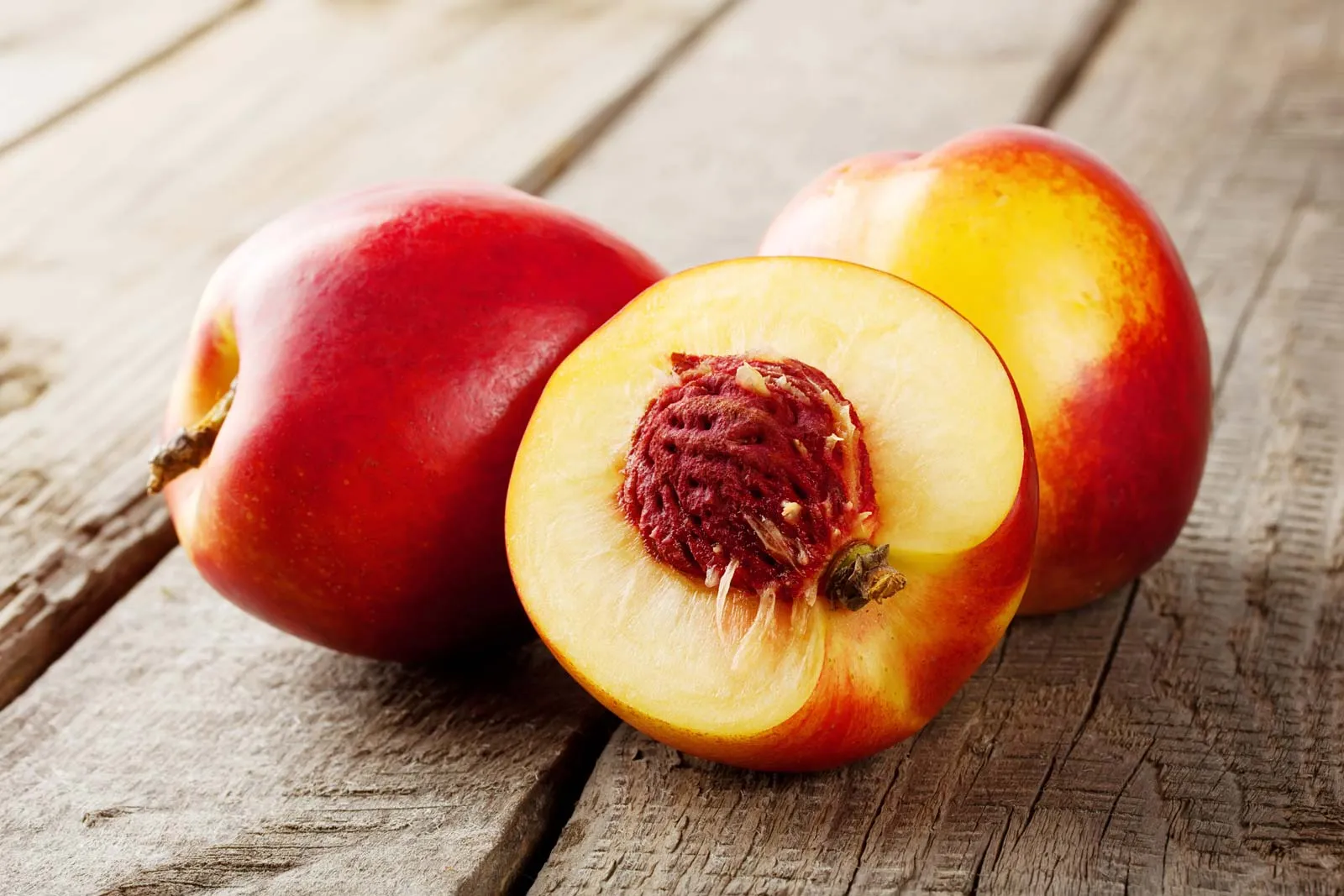- 0086-571-85302990
- sales@greenskybio.com
Nectarines: Nutrition-Packed Fruit Offers Eight Key Health Benefits
2025-07-31
 Nectarines, closely related to peaches, plums, and cherries in the stone fruit family, are not only juicy and delicious but also rich in vitamins, minerals, antioxidants, and fiber. Their impressive nutritional profile delivers a host of health benefits, making them a valuable addition to any diet.
Nectarines, closely related to peaches, plums, and cherries in the stone fruit family, are not only juicy and delicious but also rich in vitamins, minerals, antioxidants, and fiber. Their impressive nutritional profile delivers a host of health benefits, making them a valuable addition to any diet.
1. Aids Digestion
A medium nectarine contains about 2.4 grams of fiber, which helps promote healthy digestion and regular bowel movements, reducing the risk of constipation. Nectarines provide both insoluble and soluble fiber: insoluble fiber helps move food through the digestive tract, while soluble fiber feeds beneficial gut bacteria and supports overall digestive health.
2. Offers Antioxidant Protection
Nectarines are packed with powerful antioxidants like polyphenols, vitamin C, beta-carotene, and cryptoxanthin, with the highest concentrations found in the skin. These antioxidants help defend the body against free radicals, potentially lowering the risk of chronic disease and cellular damage. Vitamin C also helps support immune function and the production of collagen, vital for joint and skin health.
3. Supports Weight Management
The fiber in nectarines promotes fullness without adding excess calories, supporting weight loss and maintenance. Additionally, fiber nourishes good gut bacteria and helps regulate fat metabolism. Research shows that those who eat more fruits and vegetables are better able to maintain a healthy weight as they age.
4. Strengthens Bones
Nectarines and other stone fruits are good sources of vitamin K, a nutrient that supports healthy blood clotting and bone formation. Adequate vitamin K intake has been linked to a reduced risk of fractures and osteoporosis.
5. Improves Cardiovascular Health
Regular consumption of nectarines may boost heart health due to their high fiber, antioxidant, and potassium content. Dietary fiber lowers cholesterol, improves insulin sensitivity, and reduces belly fat—all factors that decrease the risk of metabolic syndrome, heart disease, type 2 diabetes, and stroke. Potassium and antioxidants may help regulate blood pressure and decrease blood vessel inflammation.
6. Promotes Skin Health
The polyphenols in nectarines have anti-aging, anti-inflammatory, and protective roles, supporting healthy, resilient skin.
7. Reduces Cancer Risk
A diet rich in nectarines and other stone fruits may lower the risk of certain cancers, including prostate, breast, skin, and bladder cancers. This effect is largely attributed to natural polyphenols, which help protect cells from cancer-causing changes.
8. Supports Eye Health
Nectarines are a source of the antioxidants lutein and zeaxanthin, which protect the retina and lens from age-related damage and support healthy vision.
Nutritional Profile of Nectarines
A medium nectarine (about 142 grams) contains approximately:
- Calories: 60
- Fiber: 2.4 g
- Carbohydrates: 15.1 g
- Protein: 1.5 g
- Calcium: 8.5 mg
- Potassium: 285 mg
- Magnesium: 12.8 mg
- Phosphorus: 36.9 mg
- Vitamin C: 7.7 mg
- Copper: 0.12 mg
- Niacin (vitamin B3): 1.57 mg
- Zinc: 0.24 mg
- Iron: 0.4 mg
- Lutein + zeaxanthin: 185 mcg
These nutrients contribute to strong bones, immune support, healthy skin, heart, and muscle function, and efficient energy production.
In summary, nectarines are a flavorful, nutrient-dense fruit that can benefit digestion, heart health, weight management, bone strength, skin appearance, cancer risk, and eye health. Adding nectarines to your diet is an easy, delicious way to enhance your overall wellness.
- ▶ Hesperidin
- ▶ Citrus Bioflavonoids
- ▶ Plant Extract
- ▶ lycopene
- ▶ Diosmin
- ▶ Grape seed extract
- ▶ Sea buckthorn Juice Powder
- ▶ Fruit Juice Powder
- ▶ Hops Extract
- ▶ Artichoke Extract
- ▶ Mushroom extract
- ▶ Astaxanthin
- ▶ Green Tea Extract
- ▶ Curcumin
- ▶ Horse Chestnut Extract
- ▶ Other Product
- ▶ Boswellia Serrata Extract
- ▶ Resveratrol
- ▶ Marigold Extract
- ▶ Grape Leaf Extract
- ▶ New Product
- ▶ Aminolevulinic acid
- ▶ Cranberry Extract
- ▶ Red Yeast Rice
- ▶ Red Wine Extract
-
Dandelion Root Extract
2025-07-31
-
Troxerutin
2025-07-31
-
Red Date Extract
2025-07-31
-
Yellow Pine Extract
2025-07-31
-
Moringa powder
2025-07-31
-
Lemon Juice Powder
2025-07-31
-
Yam Extract
2025-07-31
-
Garcinia Cambogia Extract
2025-07-31
-
Phyllanthus Emblica Extract
2025-07-31
-
Marigold Extract
2025-07-31





















